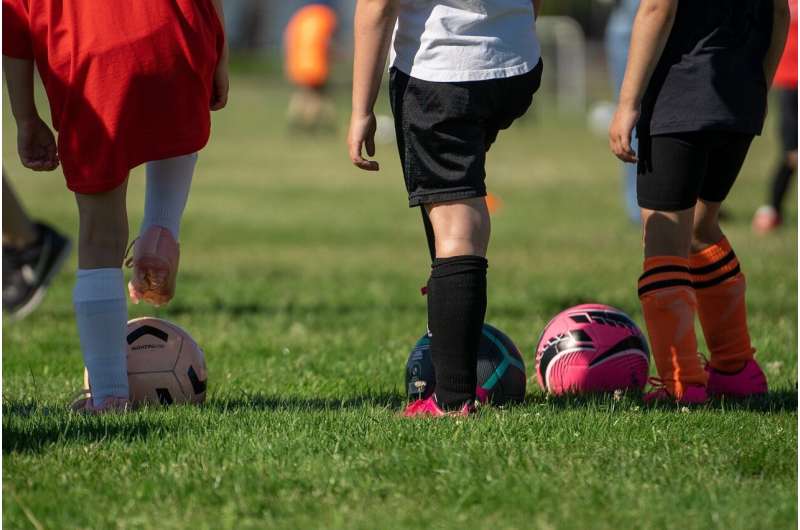
Children’s sporting events are a fun time to cheer on the kids and socialize, but they can quickly go south if parents act excessively competitive. A Baylor College of Medicine child and adolescent psychiatrist details the impact of poor sports behavior on kids.
“Some of those behaviors would be setting unrealistic expectations for the young athlete, such as perfection in a game and displaying disappointment or embarrassment if their kid isn’t meeting those expectations,” said Dr. Lauren Havel, assistant professor in the Menninger Department of Psychiatry and Behavioral Sciences at Baylor and Texas Children’s Hospital.
If children feel they cannot meet unrealistic expectations, they might start to doubt their own abilities and whether their parent is proud of them regardless of meeting those expectations. If a child does meet those expectations, they might equate their self-worth with the performance of perfection, which can eventually cause trouble with self-esteem.
Kids learn how to interact with others based on watching the important adults in their lives. When parents try to coach over the coach or demonstrate disrespect toward the coach, officials, the opposing team or other parents, kids may model that behavior. They might not develop a healthy respect for competition or be able to tolerate things that may not be fair.
When parents use curse words or physical aggression, young athletes may begin to believe that these are acceptable ways to deal with frustration or solve problems, possibly becoming aggressive themselves.
“When parents are aggressive or over-the-top, kids can also feel ashamed or embarrassed,” she said.
To avoid getting heated in the midst of your child’s game, Havel recommends focusing on the child and their motivation rather than your own motivations as a parent. Think about why they play the game and what they love about it. If you feel you are not able to manage your behavior, walk away and take a lap around the field or get a snack from the concessions stand to remove yourself from the situation and expend your energy in a different way.
A parent with concerns with a coach or official should not address that issue in front of their child or other children, but instead do so privately after the game or through an official channel.
Parents should focus on fun and have an encouraging, playful attitude at their child’s sporting events. They should cheer for their child as well as the opposing team to model respectful behavior and sportsmanship. Emphasize the process instead of the outcome and praise the child for their effort and hustle rather than dwelling on a bad play. If a child seems disappointed, upset or frustrated, validate their feelings and acknowledge that feeling, following up with reasonable encouragement.
“The idea of focusing on process rather than outcome is really important to developing a growth mindset in kids,” Havel said. “A growth mindset means believing that talent is developed through work and dedication. It’s not about scoring the goal, but improving their process of getting toward the outcome they want. This is important for kids not just in athletics, but in school and their personal lives.”
Children should learn that success is not just about getting what they want, but focusing on how they reach their goals. Parents should help kids build a healthy self-esteem that is not too fragile and allows them to tolerate disappointment or frustration.
“When parents set unrealistic expectations or push too hard, kids can develop performance anxiety. These tips are ways to help kids not only avoid patterns of behavior and self-esteem issues that can be problematic in the short term, but future anxiety disorders as well,” Havel said.
Citation:
Psychiatrist discusses unruly sports parents’ effect on children’s mental health (2024, May 1)
psychiatrist-discusses-unruly-sports-parents.html
.
. The content is provided for information purposes only.
